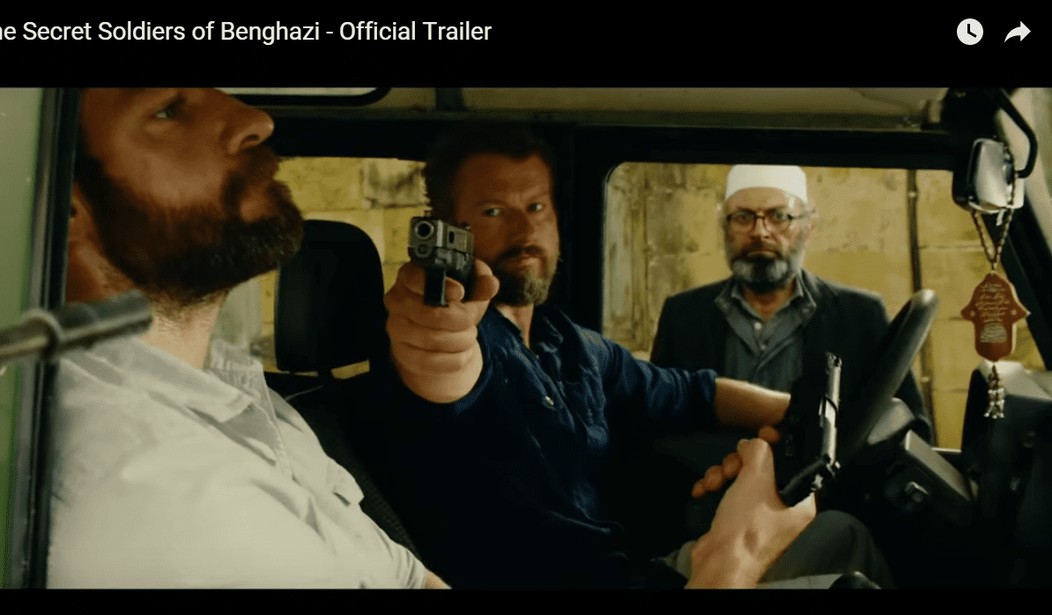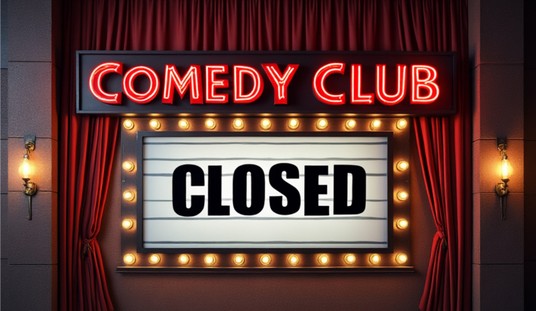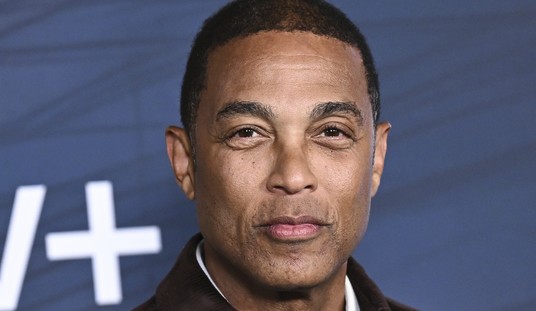[jwplayer mediaid=”197483″]
Michael Bay’s 13 Hours: The Secret Soldiers of Benghazi is a fantastic film, no less excellent for its surprisingly subtle political commentary. Far better than any direct attack ad, this film blasts President Obama and former Secretary of State Hillary Clinton while telling a compelling story of terror and heroism.
Cinekatz reviewer Vivek Subramanyam declared that “Michael Bay was born to make this movie.” Despite its hyperbole, this statement captures the combination of the action director behind “Transformers” and the tragic but thrilling tale of the September 11, 2012 terror attacks in Benghazi, Libya.
The film, based on the Mitchell Zuckoff book 13 Hours: The Inside Account of What Really Happened in Benghazi, tells the story of six ex-military security contractors working for a secret CIA base near the diplomatic compound which housed U.S. Ambassador Chris Stevens. The movie shows how difficult it was for these men to tell friend from foe — were the native Libyans on their side, or waiting for the perfect moment to kill them?
A nail-biter from start to finish, 13 Hours shows events in what seems like real time, jumping from location to location. The film has a purposefully disorienting feel, heightened by ominous music and stunning cinematography — each shot captures incredible detail of a city at war with itself.
The movie is surprisingly funny despite the grave circumstances. (One commando asks another: “You’re going to fight the Holy War in your shorts? Strong move.”) The acting mostly takes a backseat to the action, but John Krasinski (Navy SEAL Jack Silva) and James Badge Dale (Navy SEAL Tyrone Woods) nail their characters’ courage. Woods’ disobeyal of direct orders (“None of you have to go, but we are the only hope they have”) is powerful.
——————
Unavoidably political, the film bears three themes that condemn the leadership of Barack Obama and Hillary Clinton:
“The Dark Shadow Of Tyranny Has Been Lifted”
After announcing dictator Muammar Gaddafi’s death, President Obama declared:
This is a momentous day in the history of Libya. The dark shadow of tyranny has been lifted.
The movie begins with a clip of this statement, immediately followed by images of street militias getting their hands on the old regime’s weapons, and scenes of bloody violence thereafter. The carnage and death that characterizes the city of Benghazi throughout the film itself stands as a strong rebuke to Obama’s decision — advocated by Secretary of State Hillary Clinton and others — to aid the overthrow of Gaddafi’s government. Warfare, not an “Arab Spring,” followed the fall of the old regime; the September 11, 2012 attack was only the slightest American taste of the country’s bloodshed.
Obama’s speech did not end with “the dark shadow of tyranny has been lifted.” He continued, placing the ultimate outcome in the hands of the Libyan people:
With this enormous promise, the Libyan people now have a great responsibility to build an inclusive, and tolerant, and democratic Libya that stands as the ultimate rebuke to Gaddafi’s dictatorship.
Obama horribly miscalculated this possibility. It was not just the Libyan people who achieved the defeat of Gaddafi — the continued American presence in the country presented a difficult political problem, illustrated by the armed Libyans who both attacked and defended Americans throughout the film.
2. “State’s Already Blaming Al-Sharia”
Right after flying from Tripoli to Benghazi to join the attack, Glen Doherty (Toby Stephens) delivers a quick line damning Hillary Clinton:
State’s already blaming Al-Sharia.
Doherty means that the U.S. Department of State had already identified terrorist group Ansar Al-Sharia as the attack perpetrators. The movie later mocked the Obama administration’s statements blaming the attack on protests against an anti-Islamic YouTube video titled Innocence of Muslims. When Jack Silva hears this, he immediately responds:
We didn’t hear any protests.
From the beginning, the attack was organized. Assailants were armed with AK-47s, rocket-propelled grenades (RPGs), and — devastatingly — three mortars.
In these few isolated moments, 13 Hours subtly reminds Americans that they were lied to about the Benghazi attacks for political capital in the November 2012 election.
3. “I Called for Support. It Never Came.”
Moment-by-moment, 13 Hours subtly and powerfully shows the real tragedy of the 2012 Benghazi attacks — a lack of support from the powerful U.S. military. The film notes the time when the White House heard about the attack, and the time when two brave Americans were killed in mortar fire. No less than 7 hours pass.
Waiting for support is a constant theme throughout the film, beginning from the moment we hear about the attack on the ambassador’s quarters. Tyrone Woods is jumping to go help the ambassador, but his boss specifically forbids him to go. “You are not the first responders — you’re the last resort. You will wait,” the man declares. This hesitation could have been the difference between life and death.
The audience sees Ambassador Chris Stevens running into the most secure area of the temporary embassy as militants storm the facility, shoot up the American flag (in a moment of truly tragic but beautiful art) and proceed to blast their way into his building. As the seconds tick by, you keep waiting for our heroes to rush in, for the U.S. military to send an airstrike, but nothing happens.
This waiting game continues throughout the film, as our heroes must kill scores upon scores of assailants armed with automatic rifles, grenade launchers, and the occasional big explosive. As the hours creep by, civilians below find out that the U.S. military has assets less than a two-hour flight away, but no one comes.
But It’s Not All Politics
Despite these damning political themes, 13 Hours is much more than just a 2-hour attack ad. In graphic detail, it illustrates the dangers of the Middle East, the complications of U.S. involvement, and how hard it is for Americans on the ground to tell friend from foe. It drops you into another world, and shows you what true heroism looks like.
The movie is rated R for good reason — it shows real military life, complete with the coarse language and gruesome wounds in battle. Seeing men blow each other’s brains out with professional precision is rightly off limits to children. But don’t be fooled — despite all the tragic death and violence, the movie has redemption in spades.
In the end, 13 Hours isn’t about a terror plot to destroy America, or the potentially damning decisions of elected officials in Washington. It’s about six home-grown American family men who lay their lives on the line for each other against impossible odds. And that’s a hero’s tale worth telling, no matter the political fallout.









Join the conversation as a VIP Member